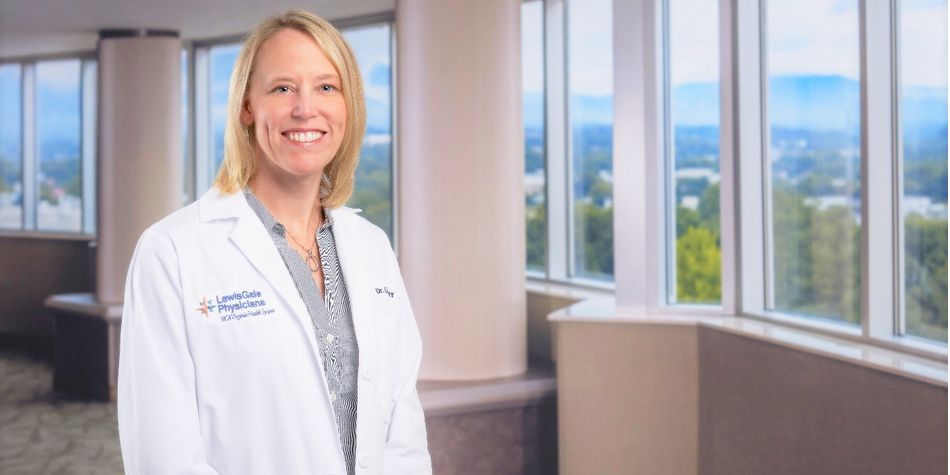
What is GERD?
Gastroesophageal reflux disease, commonly known as GERD, occurs when stomach acid and other stomach contents back up into the esophagus, the tube that connects the throat to the stomach. The most common symptom of GERD is heartburn, a burning feeling behind the breastbone that occurs more than twice a week for many weeks. At the least, acidic fluid from the stomach can cause:
- a sour or bitter taste in the mouth.
- a feeling of a lump in the throat.
- burping and bad breath.
Why is it important to diagnose GERD?
The esophagus and stomach are designed to move food downward. Over time, regurgitated stomach acid wears away the lining of the esophagus. The longer GERD goes undiagnosed, the worse the condition becomes.
Regular backflow of stomach acid causes problems in the throat and the structures around it, which can lead to:
- sore throat.
- laryngitis or cough.
- wheezing or breathing problems.
- constant throat clearing.
- changes to the voice.
Long-term damage caused by GERD may include:
- esophageal inflammation known as esophagitis.
- dysphagia—difficuty swallowing.
- esophageal bleeding and sores.
- esophageal stricture, a narrowing of the esophagus.
- stomach acid wearing away tooth enamel.
- asthma attacks.
- acid reflux moving from the stomach into the throat during sleep and draining into the lungs, leading to aspiration pneumonia.
- acidic changes to the esophageal cells, called Barrett’s esophagus.
- esophageal cancer.
The sooner GERD is diagnosed, the sooner treatment can begin to prevent the potential for more serious issues
Lisa Gray, DO, a board-certified general surgeon with LewisGale Physicians in Southwest Virginia affiliated with LewisGale Hospital Pulaski, specializes in procedures to diagnose and surgically treat conditions related to the gastrointestinal tract. She provides a minimally invasive option for patients that accurately diagnoses GERD known as a catheter-free reflux monitoring capsule.
What is a catheter-free reflux monitoring capsule?
A catheter-free reflux monitoring capsule is a minimally invasive diagnostic tool that helps identify the source of chronic heartburn, often caused by GERD. It is a temporary monitoring system that measures the pH levels of the esophagus without the need for placing a catheter tube into the throat.
How does it work?
During a routine upper endoscopy procedure, a small, wireless capsule, approximately the size of an aspirin, is temporarily attached to the wall of the esophagus using a painless delivery mechanism. The entire procedure takes only a few minutes. Patients are given a wireless recording device similar to a mobile phone that automatically reports the findings of the capsule, without the need for tubes or wires.
The capsule records for up to 96 hours, during which all normal activities, including eating and drinking, can be continued. Dr. Gray will advise patients individually regarding which medications to continue or discontinue during the evaluation process. During the evaluation period, patients use the buttons on the recording device to indicate when they are eating, lying down, or experiencing symptoms of reflux, including regurgitation, coughing, or heartburn.
The recording device:
- counts the number of reflux episodes.
- helps determine if reflux symptoms are related to GERD.
- measures the amount of acid in the esophagus.
The recording device is returned to Dr. Gray’s office, and the data is downloaded onto a computer where she analyzes the documented pH results and recommends an appropriate treatment option based on her findings. Within five to seven days after the testing period, the disposable reflux capsule naturally detaches from the wall of the esophagus and safely passes through the intestinal tract as a normal bowel movement.
Who is a candidate for receiving a catheter-free reflux monitoring capsule?
Almost all patients experiencing regular reflux are viable candidates for the catheter-free reflux monitoring capsule to help diagnose GERD, effectiveness of current GERD treatments, or other gastrointestinal motility conditions.
What are the risks versus benefits?
All diagnostic testing carries some risks, but the risks associated with diagnostic reflux capsules are relatively low. Potential risks may include:
- premature or delayed detachment of the capsule from the esophagus.
- occassional, minor discomfort at the capsule site, typically controlled with OTC medication.
- rarely, tearing in the layers of the esophagus that may cause bleeding and the need for additional medical treatment.
In general, the benefits of detecting GERD early far outweigh the potential risks, including:
- early diagnosis that leads to earlier treatment of GERD. Stopping the progression of GERD can prevent escalation to a more debilitating condition, including esophageal cancer. Likewise, if GERD is not diagnosed, Dr. Gray can help identify other potential causes of a patient’s symptoms.
- a patient-friendly, wireless system that allows patients to move freely during normal activities, including eating and bathing.
Meet Lisa Gray, DO

Dr. Lisa Gray is a board-certified general surgeon with LewisGale Physicians in Dublin, Virginia. Dr. Gray is a graduate of the Edward Via College of Osteopathic Medicine and completed her residency training at Midwestern University Chicago College of Osteopathic Medicine, where she served as Chief Resident. She also holds a Bachelor of Science degree from Randolph-Macon College. Dr. Gray is a native of Radford, Virginia.
Book an appointment online or call 540.980.9660 for more information.